Latest Sheet Music
Diana Ross

Diana Ross (born Diana Ernestine Earle Ross, March 26, 1944) is an American singer and actress. During the 1960s, she helped shape the Motown sound as lead singer of The Supremes, before leaving the group for a solo career on January 14, 1970. Since the beginning of her career with The Supremes and as a solo artist, Ross has sold more than 100 million records.
During the 1970s and through the mid-1980s, Ross was among the most successful female artists, crossing over into film, television and Broadway. She received a Best Actress Academy Award nomination for her 1972 role as Billie Holiday in Lady Sings the Blues, for which she won a Golden Globe award for. She won awards at the American Music Awards, garnered twelve Grammy Award nominations, and won a Tony Award for her one-woman show, An Evening with Diana Ross, in 1977.
In 1976, Billboard magazine named her the "Female Entertainer of the Century." In 1993, the Guinness Book of World Records declared Diana Ross the most successful female music artist in history with a total of eighteen American number-one singles: twelve as lead singer of The Supremes and six as a soloist. Ross was the first female solo artist to score six number-ones. This feat puts her in a tie for fifth place among solo female artists with the most number-ones on the Hot 100. She is also one of the few recording artists to have two stars on the Hollywood Walk of Fame—one as a solo artist and the other as a member of The Supremes. In December 2007, she received a John F. Kennedy Center for the Performing Arts Honors Award.
Including her work with The Supremes, Ross has released 67 albums. Ross is a soprano.
During the 1970s and through the mid-1980s, Ross was among the most successful female artists, crossing over into film, television and Broadway. She received a Best Actress Academy Award nomination for her 1972 role as Billie Holiday in Lady Sings the Blues, for which she won a Golden Globe award for. She won awards at the American Music Awards, garnered twelve Grammy Award nominations, and won a Tony Award for her one-woman show, An Evening with Diana Ross, in 1977.
In 1976, Billboard magazine named her the "Female Entertainer of the Century." In 1993, the Guinness Book of World Records declared Diana Ross the most successful female music artist in history with a total of eighteen American number-one singles: twelve as lead singer of The Supremes and six as a soloist. Ross was the first female solo artist to score six number-ones. This feat puts her in a tie for fifth place among solo female artists with the most number-ones on the Hot 100. She is also one of the few recording artists to have two stars on the Hollywood Walk of Fame—one as a solo artist and the other as a member of The Supremes. In December 2007, she received a John F. Kennedy Center for the Performing Arts Honors Award.
Including her work with The Supremes, Ross has released 67 albums. Ross is a soprano.
Jerry Leiber and Mike Stoller

Lyricist Jerome Leiber (April 25, 1933 – August 22, 2011) and composer Michael Stoller (born March 13, 1933) were American songwriting and record producing partners. They found success as the writers of such crossover hit songs as "Hound Dog" (1952) and "Kansas City" (1952). Later in the 1950s, particularly through their work with The Coasters, they created a string of ground-breaking hits—including "Young Blood" (1957), "Searchin'" (1957), and "Yakety Yak" (1958)—that used the humorous vernacular of teenagers sung in a style that was openly theatrical rather than personal.
Edward MacDowell

Edward Alexander MacDowell (December 18, 1860 – January 23, 1908) was an American composer and pianist of the Romantic period. He was best known for his second piano concerto and his piano suites "Woodland Sketches", "Sea Pieces", and "New England Idylls". "Woodland Sketches" includes his most popular short piece, "To a Wild Rose". In 1904 he was one of the first seven Americans honored by membership in the American Academy of Arts and Letters.
Mitchell Peters

Mitchell Thomas Peters was a principal timpanist and percussionist with the Los Angeles Philharmonic Orchestra.
Leslie Bricusse

Leslie Bricusse is an English composer, lyricist, and playwright, most prominently working in musicals and also cinema theme music
J. S. Bach
Johann Sebastian Bach (21 March 1685, O.S.31 March 1685, N.S. – 28 July 1750, N.S.) was a German composer, organist, harpsichordist, violist, and violinist whose sacred and secular works for choir, orchestra, and solo instruments drew together the strands of the Baroque period and brought it to its ultimate maturity. Although he did not introduce new forms, he enriched the prevailing German style with a robust contrapuntal technique, an unrivalled control of harmonic and motivic organisation, and the adaptation of rhythms, forms and textures from abroad, particularly from Italy and France.
Revered for their intellectual depth, technical command and artistic beauty, Bach's works include the Brandenburg Concertos, the Goldberg Variations, the Partitas, The Well-Tempered Clavier, the Mass in B minor, the St Matthew Passion, the St John Passion, the Magnificat, A Musical Offering, The Art of Fugue, the English and French Suites, the Sonatas and Partitas for solo violin, the Cello Suites, more than 200 surviving cantatas, and a similar number of organ works, including the famous Toccata and Fugue in D minor and Passacaglia and Fugue in C minor, as well as the Great Eighteen Chorale Preludes and Organ Mass.
Bach's abilities as an organist were highly respected throughout Europe during his lifetime, although he was not widely recognised as a great composer until a revival of interest and performances of his music in the first half of the 19th century. He is now generally regarded as one of the main composers of the Baroque style, and as one of the greatest composers of all time.
Revered for their intellectual depth, technical command and artistic beauty, Bach's works include the Brandenburg Concertos, the Goldberg Variations, the Partitas, The Well-Tempered Clavier, the Mass in B minor, the St Matthew Passion, the St John Passion, the Magnificat, A Musical Offering, The Art of Fugue, the English and French Suites, the Sonatas and Partitas for solo violin, the Cello Suites, more than 200 surviving cantatas, and a similar number of organ works, including the famous Toccata and Fugue in D minor and Passacaglia and Fugue in C minor, as well as the Great Eighteen Chorale Preludes and Organ Mass.
Bach's abilities as an organist were highly respected throughout Europe during his lifetime, although he was not widely recognised as a great composer until a revival of interest and performances of his music in the first half of the 19th century. He is now generally regarded as one of the main composers of the Baroque style, and as one of the greatest composers of all time.
Chopin

Frédéric Chopin (1 March 1810 – 17 October 1849) was a Polish composer and virtuoso pianist of the Romantic period. He is widely regarded as the greatest Polish composer, and ranks as one of music's greatest tone poets.
He was born in the village of Żelazowa Wola, in the Duchy of Warsaw, to a Polish mother and French-expatriate father, and in his early life was regarded as a child-prodigy pianist. In November 1830, at the age of 20, Chopin went abroad; following the suppression of the Polish November Uprising of 1830–31, he became one of many expatriates of the Polish "Great Emigration."
In Paris, he made a comfortable living as a composer and piano teacher, while giving few public performances. A Polish patriot,
Chopin's extant compositions were written primarily for the piano as a solo instrument. Though technically demanding, Chopin's style emphasizes nuance and expressive depth rather than virtuosity. Chopin invented musical forms such as the ballade and was responsible for major innovations in forms such as the piano sonata, waltz, nocturne, étude, impromptu and prelude. His works are mainstays of Romanticism in 19th-century classical music.
He was born in the village of Żelazowa Wola, in the Duchy of Warsaw, to a Polish mother and French-expatriate father, and in his early life was regarded as a child-prodigy pianist. In November 1830, at the age of 20, Chopin went abroad; following the suppression of the Polish November Uprising of 1830–31, he became one of many expatriates of the Polish "Great Emigration."
In Paris, he made a comfortable living as a composer and piano teacher, while giving few public performances. A Polish patriot,
Chopin's extant compositions were written primarily for the piano as a solo instrument. Though technically demanding, Chopin's style emphasizes nuance and expressive depth rather than virtuosity. Chopin invented musical forms such as the ballade and was responsible for major innovations in forms such as the piano sonata, waltz, nocturne, étude, impromptu and prelude. His works are mainstays of Romanticism in 19th-century classical music.
Joe Cocker
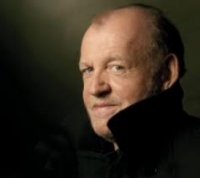
John Robert "Joe" Cocker, OBE (born 20 May 1944) is an English rock/blues musician, composer and actor who came to popularity in the 1960s, and is most known for his gritty voice, his idiosyncratic arm movements while performing, and his cover versions of popular songs, particularly those of The Beatles. He is the recipient of several awards, including a 1983 Grammy Award for his song "Up Where We Belong", a duet which he performed with Jennifer Warnes. He was ranked #97 on Rolling Stone's 100 greatest singers list.
Ozzy Osbourne

John Michael "Ozzy" Osbourne (born December 3, 1948) is an English singer. Referred to by many as the "Godfather of Heavy Metal", Osbourne's career has now spanned four decades. He rose to prominence as lead vocalist of pioneering English heavy metal band Black Sabbath, and eventually achieved a multi-platinum, award-winning solo career. In the early 2000s, his career as a celebrity revived when he became a star in his own reality show, The Osbournes (alongside wife/manager Sharon and children Kelly and Jack). In August 2008, Osbourne stated in USA Today that he intends to retire from his music career after two more albums.
Jeff Buckley

Jeffrey Scott "Jeff" Buckley (November 17, 1966 – May 29, 1997), raised as Scotty Moorhead, was an American singer-songwriter and guitarist. He was the son of Tim Buckley, also a musician. After a decade as guitarist-for-hire in Los Angeles, Buckley gained popularity in the early 1990s by playing cover songs at venues in Manhattan's East Village, such as Sin-é, gradually focusing more on his own material. After rebuffing much interest from record labels and his father's manager Herb Cohen, he signed with Columbia, recruited a band, and recorded what would be his only studio album, Grace.
Over the following two years, the band toured widely to promote the album, including concerts in the U.S., Europe, Japan and Australia. In 1996, they stopped touring and in 1997 moved to Memphis, Tennessee, to experiment with new material for a second album, recording many four-track demos and completing his third recording session for his new album with his band, with Tom Verlaine as producer. While awaiting the arrival of his band from New York, he drowned during an evening swim in the Wolf River. His body was found on June 4, 1997.
Over the following two years, the band toured widely to promote the album, including concerts in the U.S., Europe, Japan and Australia. In 1996, they stopped touring and in 1997 moved to Memphis, Tennessee, to experiment with new material for a second album, recording many four-track demos and completing his third recording session for his new album with his band, with Tom Verlaine as producer. While awaiting the arrival of his band from New York, he drowned during an evening swim in the Wolf River. His body was found on June 4, 1997.
Ludwig van Beethoven

Ludwig van Beethoven (/ˈlʊdvɪɡ væn ˈbeɪt(h)oʊvən/ (About this soundlisten); German: (About this soundlisten); baptised 17 December 1770 – 26 March 1827) was a German composer and pianist. A crucial figure in the transition between the classical and romantic eras in classical music, he remains one of the most recognized and influential musicians of this period, and is considered to be one of the greatest composers of all time.
Beethoven was born in Bonn, the capital of the Electorate of Cologne, and part of the Holy Roman Empire. He displayed his musical talents at an early age and was vigorously taught by his father Johann van Beethoven, and was later taught by composer and conductor Christian Gottlob Neefe. At age 21, he moved to Vienna and studied composition with Joseph Haydn. Beethoven then gained a reputation as a virtuoso pianist, and was soon courted by Prince Lichnowsky for compositions, which resulted in Opus 1 in 1795.
Beethoven was born in Bonn, the capital of the Electorate of Cologne, and part of the Holy Roman Empire. He displayed his musical talents at an early age and was vigorously taught by his father Johann van Beethoven, and was later taught by composer and conductor Christian Gottlob Neefe. At age 21, he moved to Vienna and studied composition with Joseph Haydn. Beethoven then gained a reputation as a virtuoso pianist, and was soon courted by Prince Lichnowsky for compositions, which resulted in Opus 1 in 1795.
Pascoal Meireles

Pascoal Meirelles is one of the founders of the group Cama de Gato, one of the most successful instrumental groups in Brazil, which has recorded several albums and toured Brazil, Spain, France, Belgium, and the United States. Starting as a self-taught drummer, he became a professional at 18 in his hometown.
Matvey Blanter

Matvey Isaakovich Blanter was a Soviet composer, and one of the most prominent composers of popular songs and film music in the Soviet Union. Among many other works, he wrote the famous "Katyusha", performed to this day internationally. He was active as a composer until 1975, producing more than two thousand songs.
Felix Mendelssohn Bartholdy

Jakob Ludwig Felix Mendelssohn Bartholdy, born and widely known as Felix Mendelssohn, was a German composer, pianist, organist and conductor of the early Romantic period. Mendelssohn's compositions include symphonies, concertos, piano music and chamber music.
Marco Borsato
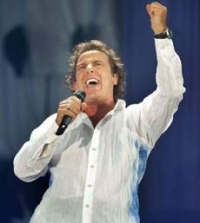
Marco Roberto Borsato (born December 21, 1966) is a popular Dutch singer, previously performing in Italian only to be recognised by the mainstream public when switching to Dutch in 1994. He is married to Leontine Ruiters and has three children.
Marco debuted as a singer after he won the Dutch Soundmixshow programme on April 7, 1990 with his rendition of the song At This Moment by Billy Vera.
He had three albums in Italian and became popular with a larger audience when he brought out a Dutch-language album and the single "Dromen Zijn Bedrog" reached number one in the Dutch charts.
Many of his songs are actually Dutch covers or adaptations of Italian songs, (for example by Riccardo Fogli, Giorgia, Riccardo Cocciante and Zucchero). In particular, he had quite a success with an adaptation of Margherita by Riccardo Cocciante.
Marco debuted as a singer after he won the Dutch Soundmixshow programme on April 7, 1990 with his rendition of the song At This Moment by Billy Vera.
He had three albums in Italian and became popular with a larger audience when he brought out a Dutch-language album and the single "Dromen Zijn Bedrog" reached number one in the Dutch charts.
Many of his songs are actually Dutch covers or adaptations of Italian songs, (for example by Riccardo Fogli, Giorgia, Riccardo Cocciante and Zucchero). In particular, he had quite a success with an adaptation of Margherita by Riccardo Cocciante.
John Ottman

John Ottman (born July 6, 1964) is an American film composer and editor. He is best known for collaborating with director Bryan Singer, composing and/or editing many of his films, including Public Access (1993), The Usual Suspects (1995), Superman Returns (2006), Valkyrie (2008) and Jack the Giant Slayer (2013), as well as the X-Men film series. For his work on Singer's 2018 Queen biopic Bohemian Rhapsody, Ottman won the Academy Award for Best Film Editing.
John Rutter

John Milford Rutter CBE (born 24 September 1945) is a British composer, conductor, editor, arranger and record producer, mainly of choral music.
Vinicius de Moraes
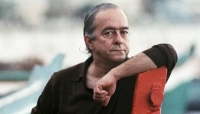
Marcus Vinicius da Cruz e Mello Moraes, also known as Vinicius de Moraes and nicknamed O Poetinha, was a Brazilian poet, lyricist, essayist, and playwright. He served as a diplomat, composed bossa nova music, and recorded several albums.
Isaac Albeniz

Isaac Albéniz i Pascual (Spanish pronunciation: ) (May 29, 1860 – May 18, 1909) was a Spanish pianist and composer best known for his piano works based on folk music.
Albéniz’ Suite Española Op.47 is comprised mainly of pieces written in 1886, and grouped together in 1887 in honor of the Queen of Spain. Like many of Albéniz' piano pieces, these works are miniature tone pictures of different geographical regions and musical idioms of Spain. The eight original titles are Granada, Cataluna, Sevilla, Cadiz, Asturias, Aragon, Castilla and Cuba but only the first three titles and Cuba appeared in the original collection. The other pieces were published in later collections, often with different titles. The publisher Hofmeister published all eight titles of Suite Espanola in 1911 after Albéniz’ death, appropriating other pieces for the other four titles so those pieces do not always accurately reflect the geographic designation of the titles, most obviously in the case of Asturias (Leyenda) whose Andalusian flamenco rhythms bear little resemblance to the music of the northern province Asturias. The opus number 47 assigned by Hofmeister has no relation to any chronological order in Albéniz’ oeuvre, in which opus numbers were randomly given by publishers or by Albéniz himself, with some pieces appearing in more than one collection.
Albéniz’ Suite Española Op.47 is comprised mainly of pieces written in 1886, and grouped together in 1887 in honor of the Queen of Spain. Like many of Albéniz' piano pieces, these works are miniature tone pictures of different geographical regions and musical idioms of Spain. The eight original titles are Granada, Cataluna, Sevilla, Cadiz, Asturias, Aragon, Castilla and Cuba but only the first three titles and Cuba appeared in the original collection. The other pieces were published in later collections, often with different titles. The publisher Hofmeister published all eight titles of Suite Espanola in 1911 after Albéniz’ death, appropriating other pieces for the other four titles so those pieces do not always accurately reflect the geographic designation of the titles, most obviously in the case of Asturias (Leyenda) whose Andalusian flamenco rhythms bear little resemblance to the music of the northern province Asturias. The opus number 47 assigned by Hofmeister has no relation to any chronological order in Albéniz’ oeuvre, in which opus numbers were randomly given by publishers or by Albéniz himself, with some pieces appearing in more than one collection.
Jerome Kern
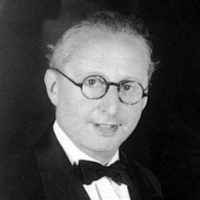
Jerome David Kern (January 27, 1885 – November 11, 1945) was an American composer of musical theatre and popular music. One of the most important American theatre composers of the early 20th century, he wrote more than 700 songs, used in over 100 stage works, including such classics as "Ol' Man River", "Can't Help Lovin' Dat Man", "A Fine Romance", "Smoke Gets in Your Eyes", "All the Things You Are", "The Way You Look Tonight", "Long Ago (and Far Away)" and "Who?". He collaborated with many of the leading librettists and lyricists of his era, including George Grossmith Jr., Guy Bolton, P. G. Wodehouse, Otto Harbach, Oscar Hammerstein II, Dorothy Fields, Johnny Mercer, Ira Gershwin and E. Y. Harburg.
A native New Yorker, Kern created dozens of Broadway musicals and Hollywood films in a career that lasted for more than four decades. His musical innovations, such as 4/4 dance rhythms and the employment of syncopation and jazz progressions, built on, rather than rejected, earlier musical theatre tradition. He and his collaborators also employed his melodies to further the action or develop characterization to a greater extent than in the other musicals of his day, creating the model for later musicals. Although dozens of Kern's musicals and musical films were hits, only Show Boat is now regularly revived. Songs from his other shows, however, are still frequently performed and adapted. Although Kern detested jazz arrangements of his songs, many have been adopted by jazz musicians to become standard tunes.
A native New Yorker, Kern created dozens of Broadway musicals and Hollywood films in a career that lasted for more than four decades. His musical innovations, such as 4/4 dance rhythms and the employment of syncopation and jazz progressions, built on, rather than rejected, earlier musical theatre tradition. He and his collaborators also employed his melodies to further the action or develop characterization to a greater extent than in the other musicals of his day, creating the model for later musicals. Although dozens of Kern's musicals and musical films were hits, only Show Boat is now regularly revived. Songs from his other shows, however, are still frequently performed and adapted. Although Kern detested jazz arrangements of his songs, many have been adopted by jazz musicians to become standard tunes.
Traditional

Jose Belmonte

José Luis Belmonte Composer Songs Selva Devorador de corazones · 1993 A Través De Tus Ojos Rio · 2005 10000 km
10000km · 2003.
10000km · 2003.
Schumann

Robert Schumann, sometimes given as Robert Alexander Schumann, (June 8, 1810 – July 29, 1856) was a German composer, aesthete and influential music critic. He is one of the most famous Romantic composers of the 19th century.
He had hoped to pursue a career as a virtuoso pianist, having been assured by his teacher Friedrich Wieck that he could become the finest pianist in Europe after only a few years of study with him. However, a hand injury prevented those hopes from being realized, and he decided to focus his musical energies on composition. Schumann's published compositions were, until 1840, all for the piano; he later composed works for piano and orchestra, many lieder (songs for voice and piano), four symphonies, an opera, and other orchestral, choral and chamber works. His writings about music appeared mostly in the Neue Zeitschrift für Musik ("The New Journal for Music"), a Leipzig-based publication that he jointly founded.
In 1840, after a long and acrimonious legal battle with his piano instructor Friedrich Wieck, Schumann married Wieck's daughter, pianist Clara Wieck, a considerable figure of the Romantic period in her own right. Clara Wieck showcased many works by her husband as well. For the last two years of his life, after an attempted suicide, Schumann was confined to a mental institution.
He had hoped to pursue a career as a virtuoso pianist, having been assured by his teacher Friedrich Wieck that he could become the finest pianist in Europe after only a few years of study with him. However, a hand injury prevented those hopes from being realized, and he decided to focus his musical energies on composition. Schumann's published compositions were, until 1840, all for the piano; he later composed works for piano and orchestra, many lieder (songs for voice and piano), four symphonies, an opera, and other orchestral, choral and chamber works. His writings about music appeared mostly in the Neue Zeitschrift für Musik ("The New Journal for Music"), a Leipzig-based publication that he jointly founded.
In 1840, after a long and acrimonious legal battle with his piano instructor Friedrich Wieck, Schumann married Wieck's daughter, pianist Clara Wieck, a considerable figure of the Romantic period in her own right. Clara Wieck showcased many works by her husband as well. For the last two years of his life, after an attempted suicide, Schumann was confined to a mental institution.
Vanessa Mae

Vanessa-Mae (陈美 Chén Měi) (born 27 October 1978) also called Vanessa-Mae Vanakorn Nicholson, is a British violinist with album sales reaching several million, having made her the wealthiest entertainer under 30 in the United Kingdom in 2006. She competed under the name Vanessa Vanakorn (Thai: วาเนสซ่า วรรณกร; her father's surname) for Thailand in alpine skiing at the 2014 Winter Olympics. She was initially banned from skiing because a qualifying race for her benefit was alleged to be corrupt, but the Court of Arbitration for Sport later nullified the ban, citing lack of evidence for her own wrongdoing or any manipulation. The International Ski Federation later had to issue an apology to her.
Schubert

Franz Peter Schubert (January 31, 1797 – November 19, 1828) was an Austrian composer. He wrote some 600 lieder, nine symphonies (including the famous "Unfinished Symphony"), liturgical music, operas, and a large body of chamber and solo piano music. He is particularly noted for his original melodic and harmonic writing.
While Schubert had a close circle of friends and associates who admired his work (including his teacher Antonio Salieri, and the prominent singer Johann Michael Vogl), wider appreciation of his music during his lifetime was limited at best. He was never able to secure adequate permanent employment, and for most of his career he relied on the support of friends and family. Interest in Schubert's work increased dramatically in the decades following his death and he is now widely considered to be one of the greatest composers in the Western tradition.
While he was clearly influenced by the Classical sonata forms of Beethoven and Mozart (his early works, among them notably the 5th Symphony, are particularly Mozartean), his formal structures and his developments tend to give the impression more of melodic development than of harmonic drama. This combination of Classical form and long-breathed Romantic melody sometimes lends them a discursive style: his 9th Symphony was described by Robert Schumann as running to "heavenly lengths". His harmonic innovations include movements in which the first section ends in the key of the subdominant rather than the dominant (as in the last movement of the Trout Quintet). Schubert's practice here was a forerunner of the common Romantic technique of relaxing, rather than raising, tension in the middle of a movement, with final resolution postponed to the very end.
While Schubert had a close circle of friends and associates who admired his work (including his teacher Antonio Salieri, and the prominent singer Johann Michael Vogl), wider appreciation of his music during his lifetime was limited at best. He was never able to secure adequate permanent employment, and for most of his career he relied on the support of friends and family. Interest in Schubert's work increased dramatically in the decades following his death and he is now widely considered to be one of the greatest composers in the Western tradition.
While he was clearly influenced by the Classical sonata forms of Beethoven and Mozart (his early works, among them notably the 5th Symphony, are particularly Mozartean), his formal structures and his developments tend to give the impression more of melodic development than of harmonic drama. This combination of Classical form and long-breathed Romantic melody sometimes lends them a discursive style: his 9th Symphony was described by Robert Schumann as running to "heavenly lengths". His harmonic innovations include movements in which the first section ends in the key of the subdominant rather than the dominant (as in the last movement of the Trout Quintet). Schubert's practice here was a forerunner of the common Romantic technique of relaxing, rather than raising, tension in the middle of a movement, with final resolution postponed to the very end.
Maria Szymanowska

Maria Szymanowska (Polish pronunciation: ; born Marianna Agata Wołowska; Warsaw, December 14, 1789 – July 25, 1831, St. Petersburg, Russia) was a Polish composer and one of the first professional virtuoso pianists of the 19th century. She toured extensively throughout Europe, especially in the 1820s, before settling permanently in St. Petersburg. In the Russian imperial capital, she composed for the court, gave concerts, taught music, and ran an influential salon.
Alicia Keys

Alicia J. Augello-Cook (born January 25, 1981), and has won numerous awards, including eleven Grammy Awards, seventeen Billboard Music Awards, three American Music Awards.
Her debut album Songs in A Minor was a worldwide success, selling nearly 11 millions albums, and received five Grammy Awards in 2002, with Alicia winning Best New Artist and also Song of the Year for "Fallin'".
Her debut album Songs in A Minor was a worldwide success, selling nearly 11 millions albums, and received five Grammy Awards in 2002, with Alicia winning Best New Artist and also Song of the Year for "Fallin'".
François Borne
François Borne, sometimes spelled Bourne, was a French flautist playing with the orchestra of Grand Théâtre de Bordeaux, composer and professor at "Conservatoire de Musique de Toulouse". He is recognized for technical improvements to the flute.
Alain Courte

Alain Courte Polish-born pianist and composer, noted for his improvisational skills. A child prodigy, Romans studied at the conservatories of Leipzig and Berlin.
Dvorak

Antonín Leopold Dvořák (September 8, 1841 – May 1, 1904) was a Czech composer of Romantic music, who employed the idioms and melodies of the folk music of his native Bohemia and Moravia. His works include operas, symphonic, choral and chamber music. His best-known works are his New World Symphony (particularly the slow movement), as well as his Slavonic Dances, American String Quartet, and Cello Concerto in B minor.
Dvořák wrote in a variety of forms: his nine symphonies generally stick to classical models that Beethoven would have recognised, but he also worked in the newly developed symphonic poem form and the influence of Richard Wagner is apparent in some works. Many of his works also show the influence of Czech folk music, both in terms of rhythms and melodic shapes; perhaps the best known examples are the two sets of Slavonic Dances. Dvořák also wrote operas (the best known of which is Rusalka); serenades for string orchestra and wind ensemble; chamber music (including a number of string quartets, and quintets); songs; choral music; and piano music.
Dvořák wrote in a variety of forms: his nine symphonies generally stick to classical models that Beethoven would have recognised, but he also worked in the newly developed symphonic poem form and the influence of Richard Wagner is apparent in some works. Many of his works also show the influence of Czech folk music, both in terms of rhythms and melodic shapes; perhaps the best known examples are the two sets of Slavonic Dances. Dvořák also wrote operas (the best known of which is Rusalka); serenades for string orchestra and wind ensemble; chamber music (including a number of string quartets, and quintets); songs; choral music; and piano music.
Hillsong United

The Hillsong United band is an Australian rock and worship band, a part of Hillsong Church's youth ministry Hillsong United. Their music is a contemporary style of praise and worship tempered with mainstream rock.
Current members of the Hillsong United band include Jonathon Douglass (J.D.), Jadwin "Jad" Gillies, Holly Watson, Annie Garratt, Bec Gillies, and Michelle Fragar, daughter of Russell Fragar. Michael Guy Chislett plays guitar and Matthew Tennikoff plays bass guitar. Former original drummer Luke Munns made a transition from the drums to front the rock/indie band LUKAS. Popular New Zealand artist Brooke Fraser recently joined the band when she joined the church, first appearing on United We Stand.
The annual Hillsong United CD/DVD was recorded over many years during their October youth conference Encounterfest, with the album released in the first quarter of the following year. The 2007 album All of the Above was the first album to be fully studio recorded, containing videos of songs on the DVD. The band has toured in a number of countries, leading worship to thousands in North and South America, Europe and Asia.
Current members of the Hillsong United band include Jonathon Douglass (J.D.), Jadwin "Jad" Gillies, Holly Watson, Annie Garratt, Bec Gillies, and Michelle Fragar, daughter of Russell Fragar. Michael Guy Chislett plays guitar and Matthew Tennikoff plays bass guitar. Former original drummer Luke Munns made a transition from the drums to front the rock/indie band LUKAS. Popular New Zealand artist Brooke Fraser recently joined the band when she joined the church, first appearing on United We Stand.
The annual Hillsong United CD/DVD was recorded over many years during their October youth conference Encounterfest, with the album released in the first quarter of the following year. The 2007 album All of the Above was the first album to be fully studio recorded, containing videos of songs on the DVD. The band has toured in a number of countries, leading worship to thousands in North and South America, Europe and Asia.
Hitoshi Sakimoto

Hitoshi Sakimoto (崎元 仁 Sakimoto Hitoshi?, born February 26, 1969) is a Japanese video game composer and arranger. He is best known for scoring the games Final Fantasy Tactics and Final Fantasy XII, though he has composed soundtracks for over 70 games and arranged music for more than 40 others. He began playing music and video games in elementary school, and began composing video game music for money by the time he was 16. Sakimoto's professional career began a few years later in 1988 when he started composing music professionally as a freelancer, as well as programming sound drivers for games. Five years and 40 games later, he achieved his first mainstream success with the score to Ogre Battle: March of the Black Queen. Four years and another 40 games later in 1997, he joined Square (now Square Enix) and composed his first international success, the score to Final Fantasy Tactics.
Andrea Ferrante

Andrea Ferrante (born 16 August 1968, Palermo, Italy) is an Italian composer whose music is performed throughout Europe, Asia and the Americas and published by Videoradio and Rai Trade Labels, Edizioni Carrara and Edizioni Simeoli. Edizioni Carrara and Edizioni Simeoli.
Rudy Clark

Rudolph Clark was an American songwriter credited with hit songs such as "If You Gotta Make a Fool of Somebody", "Got My Mind Set on You", "The Shoop Shoop Song", and "Good Lovin'". He was most active from the early 1960s through the early 1970s. He has more than 250 copyrights listed by BMI.
Fariborz Lachini

He started his career in Iran writing music for children, creating "Avaz Faslha va Rangha" at the age of 18 which caught the attention of royal family of the time. The title of national Iranian TV's children programming for more than two decades, was one of his earlier works. Before Iran's Islamic Revolution, he also created music for some of Iran's pop icons.
After the Islamic Revolution he moved to Europe to study Musicology in the Universite de Paris – Sorbonne. It was then that his music became influenced by the European styles. He returned home and created one of the best loved contemporary solo piano albums of all in Iran with a unique style, a combination of Persian and European Romantic styles called "Paeez Talaee", also known as Golden Autumn, which has been the number-one seller for years in Iran and has attracted fans from all around the world
After the Islamic Revolution he moved to Europe to study Musicology in the Universite de Paris – Sorbonne. It was then that his music became influenced by the European styles. He returned home and created one of the best loved contemporary solo piano albums of all in Iran with a unique style, a combination of Persian and European Romantic styles called "Paeez Talaee", also known as Golden Autumn, which has been the number-one seller for years in Iran and has attracted fans from all around the world
Adele

Adele Laurie Blue Adkins (born 5 May 1988 in Enfield, North London), She is the first recipient of the Brit Awards Critics' Choice, which was given to artists who, at the time, had yet to release an album. She debuted at number one with her Mercury Prize nominated debut album 19 in the UK album chart and has since then been certified platinum with sales over 500,000 copies.
Ornette Coleman
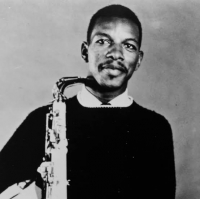
Randolph Denard Ornette Coleman, American jazz musician. The artist, who found free jazz, has tried many forms of music. Having completed his personal revolution in the second half of the 1950s, the artist radicalized the principles of bebop, which was considered the first upset of modern jazz
Vittorio Monti

Vittorio Monti (6 January 1868 – 20 June 1922) was an Italian composer, violinist, and conductor. Monti was born in Naples where he studied violin and composition at the Conservatorio di San Pietro a Majella. Around 1900 he got an assignment as the conductor for the Lamoureux Orchestra in Paris, where he wrote several ballets and operettas, for example Noël de Pierrot.
His only famous work is his Csárdás, written around 1904 and played by almost every gypsy orchestra.
His only famous work is his Csárdás, written around 1904 and played by almost every gypsy orchestra.
A.Kastalsky

Alexandr Dmitriyevich Kastalsky was a Russian composer and folklorist. Kastalsky was born in Moscow to protoiereus Dmitri Ivanovich Kastalsky. He studied music theory, composition and the piano at the Moscow Conservatory.
Asher Book

Asher Monroe Book (born September 18, 1988), known professionally as Asher Monroe, is an American singer-songwriter, dancer, and actor. In 2006, after starring in an extensive run of national tours including The Sound of Music, Oliver!, and The Prince and the Pauper, Monroe signed to Warner Bros. Records, under which he released his first top 40 single "Love Struck" as lead singer for the boy band V Factory. From 2006 to 2009, he starred in multiple prime time TV & film roles including Parenthood on NBC the MGM remake of Fame and The Mentalist on CBS, after which he signed on as the flagship solo artist to the music label D Empire Entertainment.
Jazz Standard
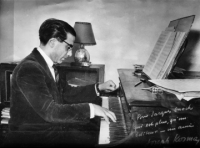
Autumn Leaves" is a popular song and jazz standard composed by Joseph Kosma with original lyrics by Jacques Prévert in French, and later by Johnny Mercer in English. An instrumental version by pianist Roger Williams was a #1 best-seller in the USA Billboard charts of 1955.
Dolores Claman

Dolores Olga Claman was a Canadian composer and pianist. She is best known for having composed the 1968 theme song for Canadian Broadcasting Corporation's Hockey Night In Canada show, known simply as "The Hockey Theme", which is regarded as the country's unofficial second national anthem.
Pretear

"Inside of my heart, the fact that I'm not alone heats my chest so much that it hurts Starting from believing, my feelings are the proof that I live in this sky where the endless future spreads, I'll be reborn into a brand-new me""I'll show you I'll make the snow of happiness fall all over the world, holding onto your hand The flower petals swaying on the water are chasing the faraway moon going farther than what I dreamed of Every time when there's something I hate, I gaze at the blue sky alone because I don't want to lose to my weaker self
Heinrich Aloys Praeger

Heinrich Aloys Praeger Musical composerBorn: December 23, 1783 Died: August 7, 1854, Magdeburg, GermanyChildren: Ferdinand Praeger.
Neil Young

Neil Percival Young OM (born November 12, 1945, Toronto, Ontario) is a Canadian singer-songwriter, musician and film director.
Young's work is characterized by deeply personal lyrics, distinctive guitar work, and signature nasal tenor singing voice. Although he accompanies himself on several different instruments—including piano and harmonica—his style of claw-hammer acoustic guitar and often idiosyncratic soloing on electric guitar are the linchpins of a sometimes ragged, sometimes polished sound. Although Young has experimented widely with differing music styles, including swing, jazz, rockabilly, blues, and electronic music throughout a varied career, his best known work usually falls into either of two distinct styles: folk-esque acoustic rock (as heard in songs such as "Heart of Gold", "Harvest Moon" and "Old Man") and electric-charged hard rock (in songs like "Cinnamon Girl", "Rockin' in the Free World" and "Hey Hey, My My (Into the Black)"). In more recent years, Young has started to adopt elements from newer styles of music, such as industrial, alternative country and grunge, the latter of which was profoundly influenced by his own style of playing, causing some to confer on him the title of "the godfather of grunge".
Young has directed (or co-directed) a number of films using the pseudonym Bernard Shakey, including Journey Through the Past (1973), Rust Never Sleeps (1979), Human Highway (1982), and Greendale (2003).
He is also an outspoken advocate for environmental issues and small farmers, having co-founded in 1985 the benefit concert Farm Aid, and in 1986 helped found The Bridge School, and its annual supporting Bridge School Benefit concerts, together with his wife Pegi.
Young's work is characterized by deeply personal lyrics, distinctive guitar work, and signature nasal tenor singing voice. Although he accompanies himself on several different instruments—including piano and harmonica—his style of claw-hammer acoustic guitar and often idiosyncratic soloing on electric guitar are the linchpins of a sometimes ragged, sometimes polished sound. Although Young has experimented widely with differing music styles, including swing, jazz, rockabilly, blues, and electronic music throughout a varied career, his best known work usually falls into either of two distinct styles: folk-esque acoustic rock (as heard in songs such as "Heart of Gold", "Harvest Moon" and "Old Man") and electric-charged hard rock (in songs like "Cinnamon Girl", "Rockin' in the Free World" and "Hey Hey, My My (Into the Black)"). In more recent years, Young has started to adopt elements from newer styles of music, such as industrial, alternative country and grunge, the latter of which was profoundly influenced by his own style of playing, causing some to confer on him the title of "the godfather of grunge".
Young has directed (or co-directed) a number of films using the pseudonym Bernard Shakey, including Journey Through the Past (1973), Rust Never Sleeps (1979), Human Highway (1982), and Greendale (2003).
He is also an outspoken advocate for environmental issues and small farmers, having co-founded in 1985 the benefit concert Farm Aid, and in 1986 helped found The Bridge School, and its annual supporting Bridge School Benefit concerts, together with his wife Pegi.
Joe Iconis
Joseph Peter Philip Iconis (born September 22, 1981) is an American musical theatre writer. He is a graduate of the NYU Tisch School of the Arts Graduate Musical Theatre Writing Program. He is a recipient of the 2006 Jonathan Larson Award, the 2007 Ed Kleban Award, and a Backstage Bistro Award. His innovative rock musical style has brought forth several shows. He has collaborated with Robert Maddock and Reza Jacobs on “Plastic! The Musical,” and Robert Maddock on “Triumphant Baby!”
Joe is also a concert performer, performing with his musical theater family or as part of the Joe Iconis Rock and Roll Jamboree at The Laurie Beechman Theater and Joe’s Pub. As part of his “Mule Revolution Tour 2008,” Joe had several popular musical theater faces guest as part of his concerts including Anthony Rapp (Original cast of Rent,) and John Gallagher Jr. (original cast of Spring Awakening). Joe is closely associated with a group of actors sometimes referred to as “The Family.” Notable “family members” include Jason “SweetTooth” Williams, Lance Rubin, Katrina Rose Dideriksen, Krysta Rodriguez (Spring Awakening, In The Heights), Lorinda Lisitza, Badia Farha, Lauren Marcus, Matt Hinkley, Nick Blaemire, Jason Tam, Sarah Glendening, Liz Lark Brown, and musical theater icon Annie Golden (Assassins, Hair, Xanadu.)
Iconis is also a member of a band, the Big Galoots, along with Matt Hinkley, Lance Rubin, and Jason "SweetTooth" Williams.
Joe is also a concert performer, performing with his musical theater family or as part of the Joe Iconis Rock and Roll Jamboree at The Laurie Beechman Theater and Joe’s Pub. As part of his “Mule Revolution Tour 2008,” Joe had several popular musical theater faces guest as part of his concerts including Anthony Rapp (Original cast of Rent,) and John Gallagher Jr. (original cast of Spring Awakening). Joe is closely associated with a group of actors sometimes referred to as “The Family.” Notable “family members” include Jason “SweetTooth” Williams, Lance Rubin, Katrina Rose Dideriksen, Krysta Rodriguez (Spring Awakening, In The Heights), Lorinda Lisitza, Badia Farha, Lauren Marcus, Matt Hinkley, Nick Blaemire, Jason Tam, Sarah Glendening, Liz Lark Brown, and musical theater icon Annie Golden (Assassins, Hair, Xanadu.)
Iconis is also a member of a band, the Big Galoots, along with Matt Hinkley, Lance Rubin, and Jason "SweetTooth" Williams.
Queen

Queen were an English rock band formed in 1970 in London by guitarist Brian May, lead vocalist Freddie Mercury, and drummer Roger Taylor, with bass guitarist John Deacon completing the lineup the following year. While it is uncertain how many albums the band has sold, estimations range from 130 million to over 300 million albums worldwide.
The band is noted for their musical diversity, multi-layered arrangements, vocal harmonies, and incorporation of audience participation into their live performances. Their 1985 Live Aid performance was voted the best live rock performance of all time in an industry poll.
Queen had moderate success in the early 1970s, with the albums Queen and Queen II, but it was with the release of Sheer Heart Attack in 1974 and A Night at the Opera the following year that the band gained international success. They have released fifteen studio albums, five live albums, and numerous compilation albums. Eighteen of these have reached number one on charts around the world.
Following Mercury's death in 1991 and Deacon's retirement later in the decade, May and Taylor have performed infrequently under the Queen name. Since 2005 they have been collaborating with Paul Rodgers, under the moniker Queen + Paul Rodgers.
The band is noted for their musical diversity, multi-layered arrangements, vocal harmonies, and incorporation of audience participation into their live performances. Their 1985 Live Aid performance was voted the best live rock performance of all time in an industry poll.
Queen had moderate success in the early 1970s, with the albums Queen and Queen II, but it was with the release of Sheer Heart Attack in 1974 and A Night at the Opera the following year that the band gained international success. They have released fifteen studio albums, five live albums, and numerous compilation albums. Eighteen of these have reached number one on charts around the world.
Following Mercury's death in 1991 and Deacon's retirement later in the decade, May and Taylor have performed infrequently under the Queen name. Since 2005 they have been collaborating with Paul Rodgers, under the moniker Queen + Paul Rodgers.
 Sheet Music Max is a site for those who wants to access popular sheet music easily,
letting them download the sheet music for free for trial purposes.
It's completely free to download and try the listed sheet music, but you have to delete the files after 24 hours of trial.
Don't forget, if you like the piece of music you have just learned playing,
treat the artist with respect, and go buy the original sheet music.
Sheet Music Max is a site for those who wants to access popular sheet music easily,
letting them download the sheet music for free for trial purposes.
It's completely free to download and try the listed sheet music, but you have to delete the files after 24 hours of trial.
Don't forget, if you like the piece of music you have just learned playing,
treat the artist with respect, and go buy the original sheet music.

